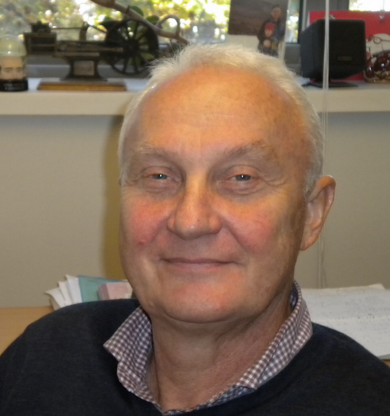Invited Lectures
Mechanical Engineering Department, Southern Methodist University, USA
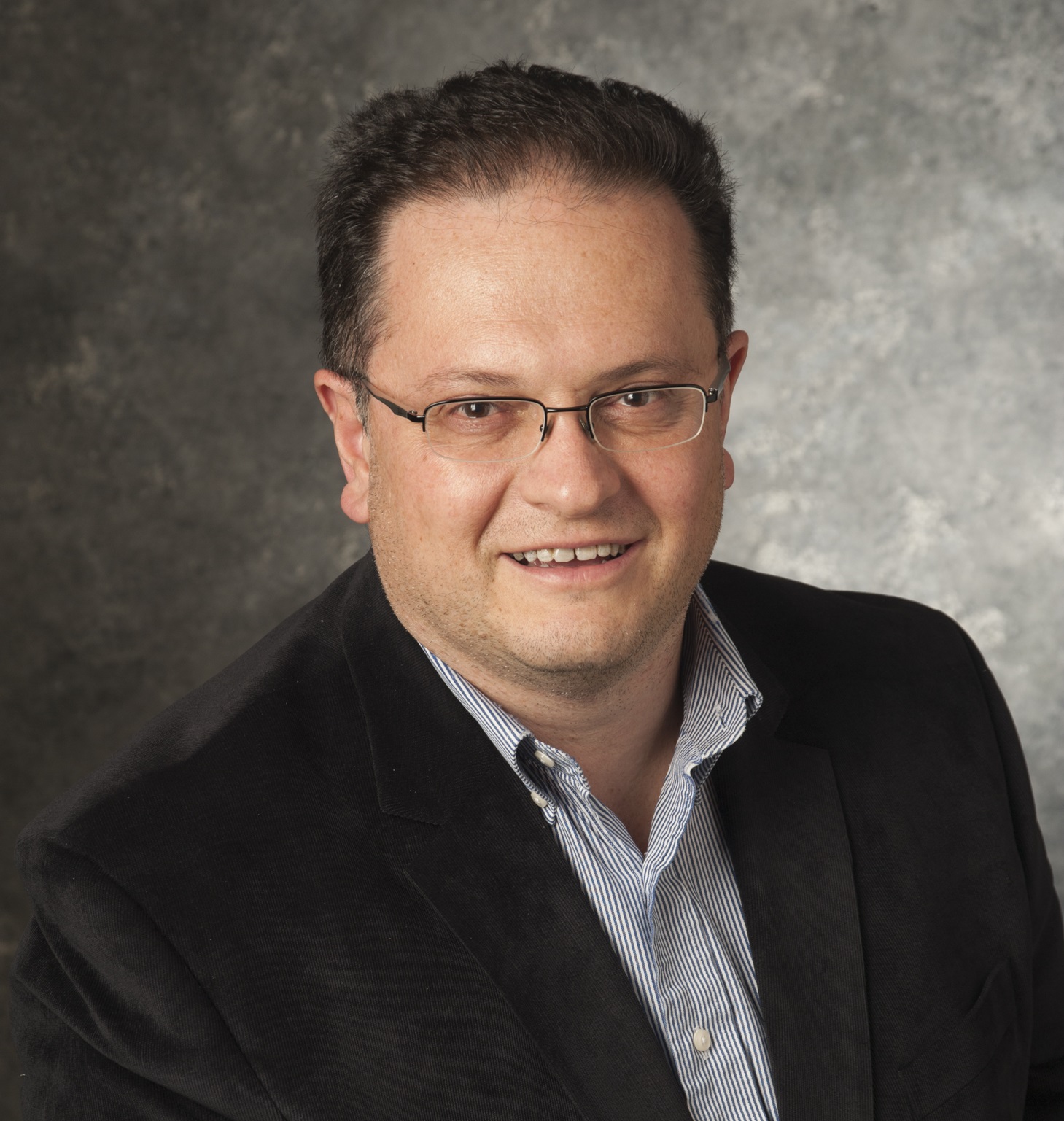 Bio: Prof. Ali Beskok received his B.S. in Mechanical Engineering from Middle East Technical University, Ankara, Turkey in 1988. He received an MS degree in Mechanical Engineering from Indiana University Purdue University in Indianapolis in 1991, and M.S. and Ph.D. degrees from Princeton University, Mechanical and Aerospace Engineering in 1994 and 1996, respectively. Dr. Beskok was a Visiting Scholar at Brown University, Center for Fluid Mechanics from 1994 to 1996, and a Post-Doctoral Research Associate at Massachusetts Institute of Technology, Research Laboratory of Electronics from 1996-1998. He joined Texas A&M University Mechanical Engineering Department as an Assistant Professor in 1998, and became an Associate Professor in 2004. In 2007, he moved to Old Dominion University, Mechanical and Aerospace Engineering Department as the Batten Endowed Chair Professor of Computational Engineering. He was also the founding director of the ODU Institute of Micro and Nanotechnology. In August 2013, he moved to Southern Methodist University as the chair of the Mechanical Engineering Department and served at this capacity until June 2019. Currently, he is the Brown Foundation, Inc. Professor of Engineering at SMU. For publications please see Google Scholar: https://scholar.google.com/citations?hl=en&user=dMEOZKsAAAAJ
Bio: Prof. Ali Beskok received his B.S. in Mechanical Engineering from Middle East Technical University, Ankara, Turkey in 1988. He received an MS degree in Mechanical Engineering from Indiana University Purdue University in Indianapolis in 1991, and M.S. and Ph.D. degrees from Princeton University, Mechanical and Aerospace Engineering in 1994 and 1996, respectively. Dr. Beskok was a Visiting Scholar at Brown University, Center for Fluid Mechanics from 1994 to 1996, and a Post-Doctoral Research Associate at Massachusetts Institute of Technology, Research Laboratory of Electronics from 1996-1998. He joined Texas A&M University Mechanical Engineering Department as an Assistant Professor in 1998, and became an Associate Professor in 2004. In 2007, he moved to Old Dominion University, Mechanical and Aerospace Engineering Department as the Batten Endowed Chair Professor of Computational Engineering. He was also the founding director of the ODU Institute of Micro and Nanotechnology. In August 2013, he moved to Southern Methodist University as the chair of the Mechanical Engineering Department and served at this capacity until June 2019. Currently, he is the Brown Foundation, Inc. Professor of Engineering at SMU. For publications please see Google Scholar: https://scholar.google.com/citations?hl=en&user=dMEOZKsAAAAJ
Department of Physics, Boston College, USA
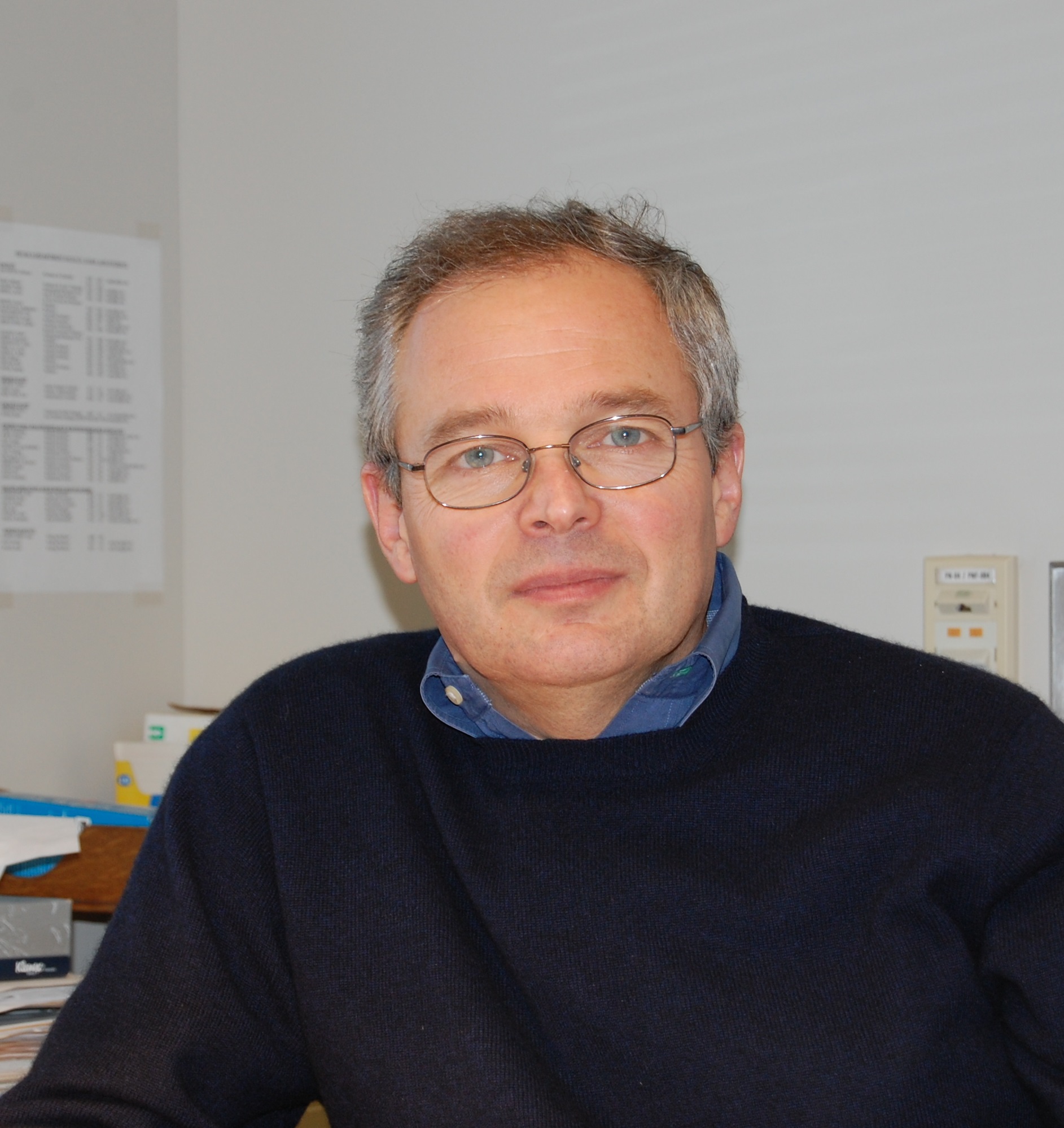 Andrzej Herczyński is a Research Professor and Laboratory Director in the Department
of Physics at Boston College. He was educated at the University of Warsaw and at
Lehigh University (Ph.D. in physics in 1987). His research has been in fluid dynamics
and applied mathematics, including linear waves in complex environments. He has also
been interested in connections between natural sciences and the arts, and has collaborated
with the Honors Program at Boston College and Collegium Artes Liberales at the
University of Warsaw. He published on the physics of Jackson Pollock’s painting
technique, and developed an interdisciplinary summer course The Art of Physics at the
University of Parma. In 2017, he was the principal organizer of the program on Growth,
Form, and Self-Organization at the Newton Institute in Cambridge, and the related
exhibition Form in Art: Art of Form. A recent crossover project is on Paul Klee
Notebooks: Form & Mathematics.
Andrzej Herczyński is a Research Professor and Laboratory Director in the Department
of Physics at Boston College. He was educated at the University of Warsaw and at
Lehigh University (Ph.D. in physics in 1987). His research has been in fluid dynamics
and applied mathematics, including linear waves in complex environments. He has also
been interested in connections between natural sciences and the arts, and has collaborated
with the Honors Program at Boston College and Collegium Artes Liberales at the
University of Warsaw. He published on the physics of Jackson Pollock’s painting
technique, and developed an interdisciplinary summer course The Art of Physics at the
University of Parma. In 2017, he was the principal organizer of the program on Growth,
Form, and Self-Organization at the Newton Institute in Cambridge, and the related
exhibition Form in Art: Art of Form. A recent crossover project is on Paul Klee
Notebooks: Form & Mathematics.
Department of Physics, Boston College, USA
National Flying Laboratory Centre (NFLC), Cranfield University, United Kingdom
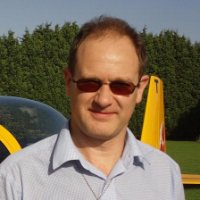 Professor Nicholas Lawson holds a Chair in Aerodynamics and Airborne Measurement and heads the
National Flying Laboratory Centre (NFLC) at Cranfield University. He is also a Chartered Engineer, a
Fellow of the Royal Aeronautical Society and a member of the Society of Flight Test Engineers.
Professor Lawson joined Cranfield University as a Senior Lecturer in October 2003. Prior to this he
worked at Cranfield University Shrivenham for four years lecturing in aerodynamics, thermofluids,
missile and aircraft propulsion at the Defence Academy, after completing a 4 year post-doctoral
position at the University of Melbourne, Australia. His PhD was completed at Loughborough
University with Rolls Royce plc.
Professor Lawson has extensive experience in the development and application of particle image
velocimetry (PIV) and laser Doppler anemometry (LDA) to high speed, large scale, non-Newtonian
and multi-phase flows, where he has worked with industrial partners including Airbus UK, Rolls
Royce plc and MBDA. He has also worked in EU FP6 and FP7 research projects with partners
including NLR, DLR and Rzeszow University of Technology in ‘Advanced In-Flight Measurements' 1
and 2. His current research focus is on the application and development of advanced
instrumentation for aircraft, airborne research and flight trials, where the application of fibre optic
sensors in-flight is a key focus of his work.
He holds a commercial pilots licence with MEP IR and instructor ratings, a Jetstream 31/32 type
rating and is one of the pilots flying for NFLC. He is also one of the demonstrators lecturing and
instructing students on flight dynamics short courses in the Jetstream 31 flying laboratory.
Professor Nicholas Lawson holds a Chair in Aerodynamics and Airborne Measurement and heads the
National Flying Laboratory Centre (NFLC) at Cranfield University. He is also a Chartered Engineer, a
Fellow of the Royal Aeronautical Society and a member of the Society of Flight Test Engineers.
Professor Lawson joined Cranfield University as a Senior Lecturer in October 2003. Prior to this he
worked at Cranfield University Shrivenham for four years lecturing in aerodynamics, thermofluids,
missile and aircraft propulsion at the Defence Academy, after completing a 4 year post-doctoral
position at the University of Melbourne, Australia. His PhD was completed at Loughborough
University with Rolls Royce plc.
Professor Lawson has extensive experience in the development and application of particle image
velocimetry (PIV) and laser Doppler anemometry (LDA) to high speed, large scale, non-Newtonian
and multi-phase flows, where he has worked with industrial partners including Airbus UK, Rolls
Royce plc and MBDA. He has also worked in EU FP6 and FP7 research projects with partners
including NLR, DLR and Rzeszow University of Technology in ‘Advanced In-Flight Measurements' 1
and 2. His current research focus is on the application and development of advanced
instrumentation for aircraft, airborne research and flight trials, where the application of fibre optic
sensors in-flight is a key focus of his work.
He holds a commercial pilots licence with MEP IR and instructor ratings, a Jetstream 31/32 type
rating and is one of the pilots flying for NFLC. He is also one of the demonstrators lecturing and
instructing students on flight dynamics short courses in the Jetstream 31 flying laboratory.
The University of Warwick, Coventry, United Kingdom
 Duncan Lockerby is Professor in the Fluid Dynamics Research Centre at the University of Warwick, where he has been since 2006. His research interests lie in: nanoscale fluid mechanics; multiscale modelling; microscale (rarefied) gas dynamics; flow control and drag reduction; and biological fluid mechanics. He has worked in partnership with a number of UK institutions, over a number of years, on the multiscale modelling of micro and nanoflows (www.micronanoflows.ac.uk). This collaborative team is currently funded by an EPSRC Programme Grant (https://bit.ly/372yVTk) that Lockerby leads. Recent published work includes understanding the role of kinetic effects on the evaporation of nanodroplets (Phys. Rev. Lett. 123, 154501; web article: https://bit.ly/2Ot18wa) and a re-evaluation of the Rayleigh-Plateau instability at the nanoscale (J. Fluid. Mech. 861: R3; Physics Today article: https://bit.ly/2OumGIH). Administrative roles at Warwick include Head of Research and Deputy Head for the School of Engineering.
Duncan Lockerby is Professor in the Fluid Dynamics Research Centre at the University of Warwick, where he has been since 2006. His research interests lie in: nanoscale fluid mechanics; multiscale modelling; microscale (rarefied) gas dynamics; flow control and drag reduction; and biological fluid mechanics. He has worked in partnership with a number of UK institutions, over a number of years, on the multiscale modelling of micro and nanoflows (www.micronanoflows.ac.uk). This collaborative team is currently funded by an EPSRC Programme Grant (https://bit.ly/372yVTk) that Lockerby leads. Recent published work includes understanding the role of kinetic effects on the evaporation of nanodroplets (Phys. Rev. Lett. 123, 154501; web article: https://bit.ly/2Ot18wa) and a re-evaluation of the Rayleigh-Plateau instability at the nanoscale (J. Fluid. Mech. 861: R3; Physics Today article: https://bit.ly/2OumGIH). Administrative roles at Warwick include Head of Research and Deputy Head for the School of Engineering.
Theodore von Kármán Professor of Aeronautics at the California Institute of Technology, USA
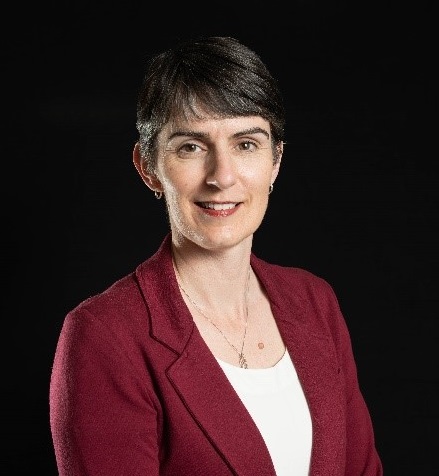 is Theodore von Karman Professor of Aeronautics at the Graduate Aerospace Laboratories at Caltech (GALCIT) and Deputy Chair of the Division of Engineering & Applied Science. Her research interests include interdisciplinary approaches to manipulation of boundary layer flows using morphing surfaces, fundamental investigations of wall turbulence at high Reynolds number, the development of resolvent analysis for modeling turbulent flows, and assimilation of experimental data for efficient low-order flow modeling. She was the recipient of a Vannevar Bush Faculty Fellowship from the DoD in 2017, the Presidential Early Career Award (PECASE) in 2009 and an NSF CAREER Award in 2008, and is a Fellow of the APS and the AIAA. She currently serves as co-Lead Editor of Physical Review Fluids and on the editorial board of the Annual Review of Fluid Mechanics, and is a past editor-in-chief of Experimental Thermal and Fluid Science. She is the current Chair, and APS representative, of the US National Committee on Theoretical and Applied Mechanics.
is Theodore von Karman Professor of Aeronautics at the Graduate Aerospace Laboratories at Caltech (GALCIT) and Deputy Chair of the Division of Engineering & Applied Science. Her research interests include interdisciplinary approaches to manipulation of boundary layer flows using morphing surfaces, fundamental investigations of wall turbulence at high Reynolds number, the development of resolvent analysis for modeling turbulent flows, and assimilation of experimental data for efficient low-order flow modeling. She was the recipient of a Vannevar Bush Faculty Fellowship from the DoD in 2017, the Presidential Early Career Award (PECASE) in 2009 and an NSF CAREER Award in 2008, and is a Fellow of the APS and the AIAA. She currently serves as co-Lead Editor of Physical Review Fluids and on the editorial board of the Annual Review of Fluid Mechanics, and is a past editor-in-chief of Experimental Thermal and Fluid Science. She is the current Chair, and APS representative, of the US National Committee on Theoretical and Applied Mechanics.
LIMSI, Paris-Saclay, France; TU Berlin, Germany; TU Braunschweig, Germany; Harbin Institute of Technology, Shenzhen, China
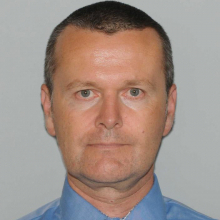
Bernd R. Noack is Director of Research CNRS at LIMSI, Paris-Saclay, Professor and Chair in Turbulence Control at TU Berlin, Professor and Chair in Flow Modeling and Control at TU Braunschweig, and Visiting Professor at Harbin Institute of Technology, Shenzhen. Past affiliations include the United Technologies Research Center, Max-Planck Society, German Aerospace Center and University of Göttingen.
He develops closed-loop turbulence control solutions for cars, airplanes and transport systems in an interdisciplinary effort with leading groups in Europe, China and USA/Canada. His team is advancing the frontiers of nonlinear control-oriented reduced-order models and machine learning control, an automated learning of control laws in the experiment.
He has co-authored over 200 publications, 2 patents and 2 textbooks. His work has been honored by numerous awards, e.g. a Fellowship of the American Physical Society, a CNRS Scientific Excellence award, a Senior ANR Chair of Excellence in France, and an annual von Mises Award of International Association of Applied Mathematics and Mechanics.

